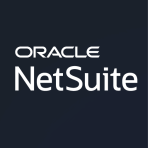We are using the latest version.
We use the solution for operational requirements, including procurement, inventory and management. As we are advocates of contraction, we cover almost everything within the system.
We found that the system was unable to address many of our concerns, especially when it comes to project management. We actually found it to be quite hard to use and to lack user-friendliness, which is the reason we decided to move.
While the overall function for providing coverage is good, the way the system works turned out to be a bit difficult. Efficiency was an issue, as well as user-friendliness. Something which would take five minutes in a standard ERP, takes 10 with the solution. The method of handling the entire transactions should be greatly simplified.
When it comes to scalability, a much larger team is needed to handle the system than would otherwise be the case with an SAP solution.
The solution is really expensive.
If used properly, one can see a return on his investment. If not, it will cost a person a lot of money. It's that simple.
I have worked with technical support and it actually involves two types of consultants, one technical and the other functional. The technical requirements, such as coding, which comprise the backend, should have more people involved for delivering what is needed.
We have been using JD Edwards EnterpriseOne in excess of four to five years.
When it comes to scalability, a much larger team is needed to handle the system than would otherwise be the case with an SAP solution.
The solution is used extensively in our organization.
I have worked with technical support and it actually involves two types of consultants, one technical and the other functional. The technical requirements, such as coding, which comprise the backend, should have more people involved for delivering what is needed.
We have plans to move to another solution.
Much cost-consuming staff is needed for deployment and maintenance.
If used properly, one can see a return on his investment. If not, it will cost a person a lot of money. It's that simple.
The solution is really expensive.
When it comes to scalability, a much larger team is needed to handle the system than would otherwise be the case with an SAP solution.
The deployment is handled through a third party; in which we have a team of consultants. They handle everything, from the setup, to the implementation, to the training.
My advice to others is that they use what is available in the system and not attempt to exceed its capacity.
I rate JD Edwards EnterpriseOne as a five out of ten.














